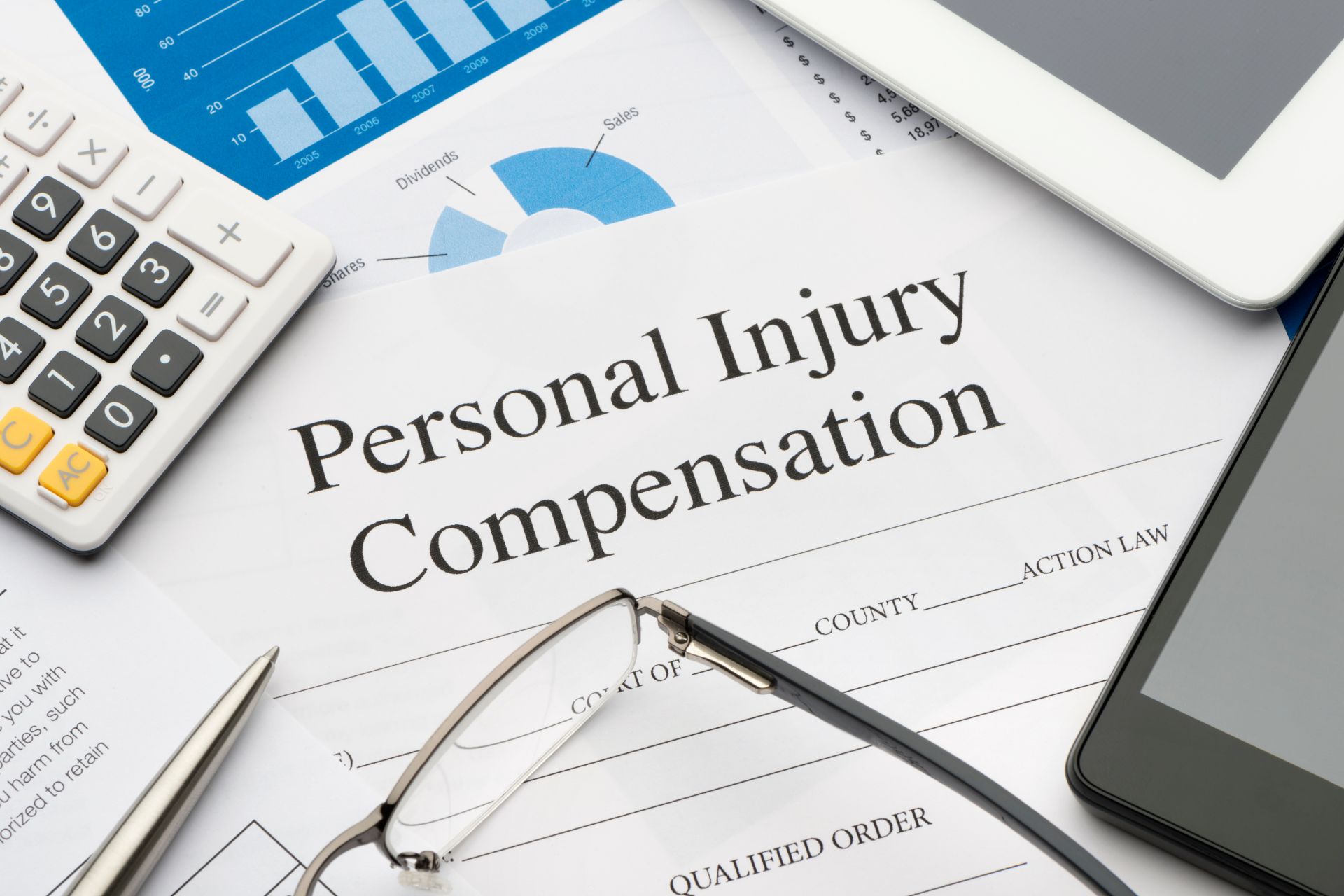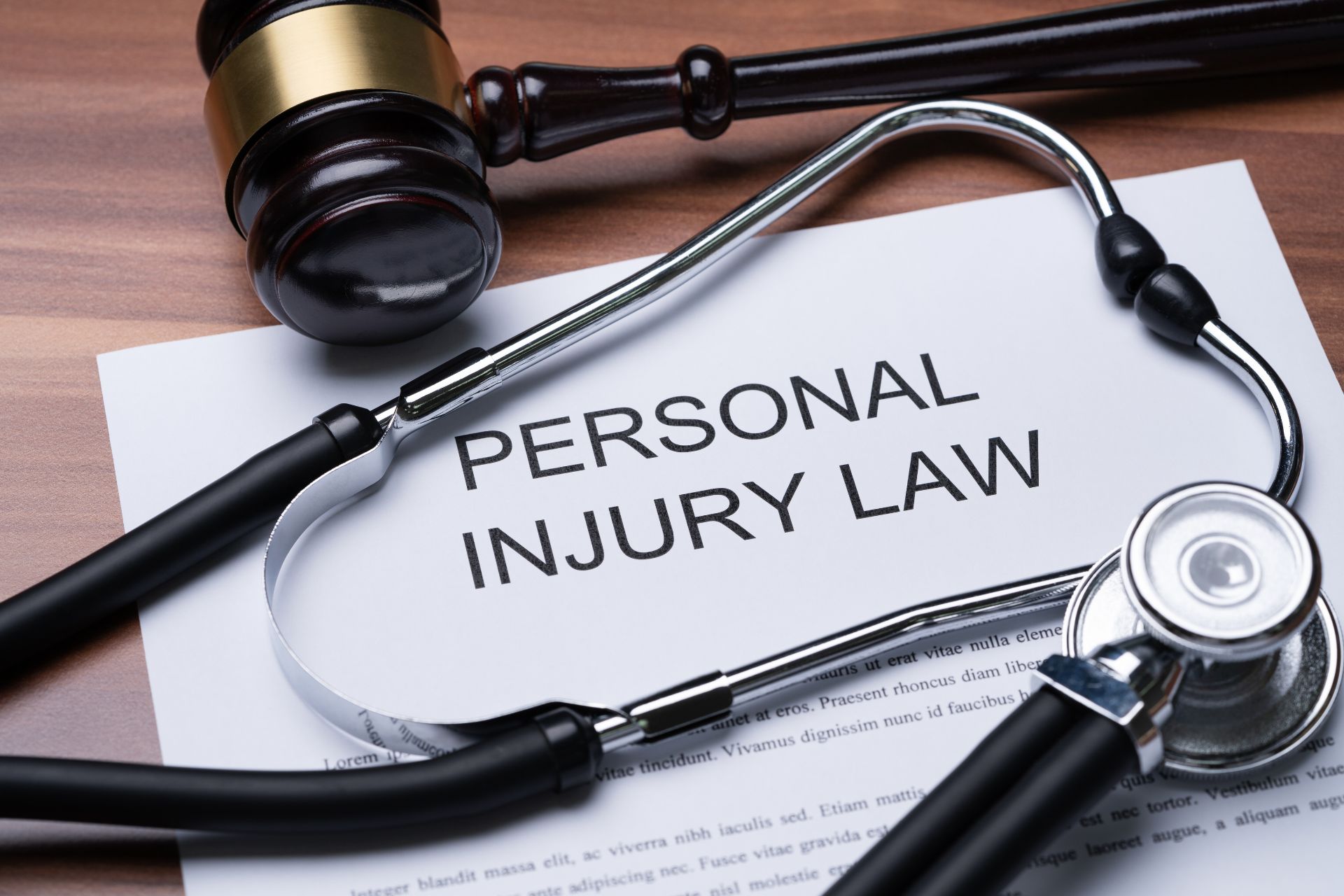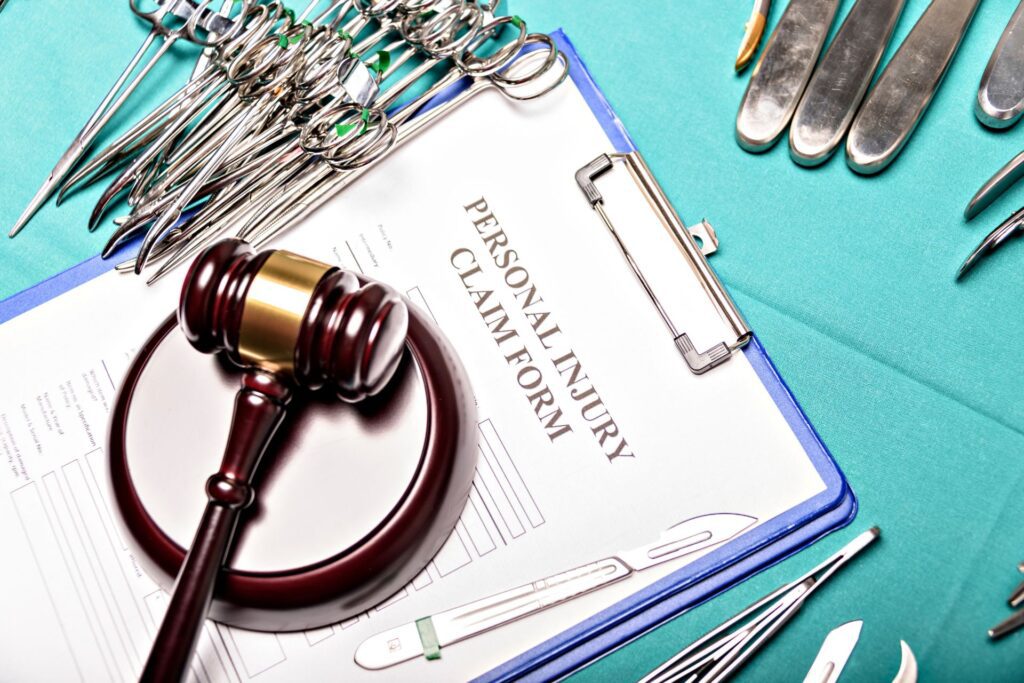If you’ve ever wondered about examples of compensatory damages, this blog post will provide a comprehensive understanding. Compensatory damages are a critical component in personal injury cases, providing financial relief to those who have suffered loss because of someone else’s unlawful conduct.
We’ll delve into the different categories of compensatory damages and illustrate them with real-life examples. You’ll learn how these monetary awards can cover actual expenses, such as medical bills or lost wages, as well as more abstract losses, such as mental anguish or loss of enjoyment of life.
Furthermore, we’ll explore historical case studies that showcase significant compensation awards. We’ll also distinguish between punitive and compensatory damages, which are two distinct types of damages. Lastly, we’ll discuss why seeking legal assistance is crucial when seeking compensation.
This guide offers an opportunity for you to better understand the nuances involved in receiving compensatory damages and their role within our legal system.
Understanding Compensatory Damages
Compensatory damages are like a monetary hug from the court to make up for losses or injuries caused by someone else’s wrongdoing. They’re the legal equivalent of a “there, there” pat on the back.
Definition of Compensatory Damages
Whether physical harm, emotional distress, or a financial setback, compensatory damages cover any loss that is directly caused by someone else’s actions. Think of it as a financial Band-Aid for the boo-boos caused by another person.
Role of Compensatory Damages in Personal Injury Cases
In personal injury cases and medical malpractice lawsuits, compensatory damages aim to financially restore victims back to their pre-injury state. They cover costs, such as medical bills and lost wages, which provides financial relief after an accident has turned someone’s life upside down. It’s like a legal piggy bank to help make things right.
Categories of Compensatory Damages
Compensatory damages can be broken down into two main categories: general and actual damages.
1) General Damage: These include non-economic losses, such as pain and suffering or emotional distress, which don’t have specific price tags but significantly impact one’s quality of life. It’s like attempting to quantify the anguish of a broken heart.
2) Actual Damage: This covers tangible economic losses with clear monetary value, such as lost income due to missed work following an accident. It’s like getting a bill for all the things you lost because of someone else’s mistake.
By understanding these distinctions, you can gain insight into how courts determine appropriate compensation based on the unique circumstances surrounding each case. Think of this as a legal decoder ring to help you understand the compensation process.


Actual Compensatory Damages Examples
In personal injury cases, actual compensatory damages play a significant role. These are tangible losses that can be quantified in monetary terms and include medical expenses, property damage, and lost income due to missed workdays or reduced earning capacity.
Lost Wages Due To Missed Workdays
You may have to take time off of work because of your injuries, which was caused by someone else’s negligence. This could lead to a loss of wages, which is considered actual damage. For instance, if you earn $20 per hour and miss 50 hours of work due to your injuries, then you could lose about $1,000 in lost wages. Learn more about Lost Wages.
Future Earnings Lost Due To Reduced Capacity At Work
Sometimes, injuries may cause long-term disabilities, which can affect your ability to effectively perform tasks at work. This could lead to reduced earning capacity. In this case, you’re also entitled to compensation for loss of future earning capacity.
For example, if a construction worker suffers from a spinal cord injury, making them unable to lift heavy objects, then they may need to switch to a lower-paying desk job. This could lead them to lose out on potential higher income from their original profession. Learn more about Future Earnings Loss.
It’s important to note that these types of losses aren’t hypothetical and they can happen to anyone. Therefore, understanding what constitutes actual compensatory damages becomes crucial when seeking compensation through the justice system. It helps to ensure that you receive proper compensation in relation to your injuries so that your life can go back to being as normal as possible.
General Compensatory Damage Examples
In personal injury, general compensatory damages play a significant role. Unlike actual compensatory damages that cover tangible losses, these are awarded for intangible harm that doesn’t necessarily involve monetary loss, but significantly impacts one’s quality of life.
Mental Anguish After an Accident
Imagine being in a car accident and then experiencing anxiety, depression, or post-traumatic stress disorder (PTSD). These psychological conditions can drastically affect your daily life and overall well-being. In such cases, courts often award general compensatory damages to compensate for mental anguish. Studies show that mental health is just as important as physical health, so it’s essential to seek professional help if you’re struggling.
Loss of Enjoyment in Life Following a Mishap
What if, because of an injury caused by someone else’s negligence, you could no longer participate in the activities you once loved? For example, if you were an avid runner and sustained serious leg injuries in an accident, you might not be able to participate in marathons anymore. This could be considered a loss of enjoyment of life, and you would be entitled to general compensatory damages. Research shows that losing the ability to engage in activities that bring us joy can have a significant impact on our mental health.
Professional Legal Guidance is Key
The amount awarded under this category greatly varies, as it depends on several factors, such as the severity of emotional distress and the impact on your lifestyle. Hence, it’s crucial to have professional legal guidance when navigating through this complex process. Engaging a personal injury attorney may be advantageous when seeking to get the compensation you deserve.
Historical Case Studies Illustrating Compensation Awards
Let’s dive into some historical case studies to see how courts have determined compensation awards based on fault and the impact on the victim’s lifestyle. These examples can help to shed light on how damages for personal injury are decided.
The Wisconsin Schoolboy Case Study
In this case, a Wisconsin schoolboy sued his classmate for injuring his knee during school hours. The court ruled in favor of the injured boy, awarding him substantial compensatory damages for medical expenses, pain and suffering, as well as loss of future earning capacity because of permanent physical impairment. This case illustrates that even slight incidents may cause considerable financial repercussions if they result in prolonged injuries.
The English Mill Owner Lawsuit
Now, let’s take a look at an older lawsuit involving an English mill owner who claimed losses due to delays caused by a contractor. Since the business owner could not establish that he suffered losses because of the contractor’s delay, he wasn’t awarded any compensatory damages.
Understanding these real-world scenarios helps us appreciate why it’s important that you adequately document your injuries and costs. Whether they are out-of-pocket expenses, such as medical bills, or intangible losses, such as emotional distress, it’s important to document all losses after an accident.
Punitive vs. Compensatory Damage Awards
It’s also important to understand the distinction between punitive and compensatory damages. Though both are financial awards, they serve different objectives.
Compensatory Damages: Making the Victim Whole Again
Compensatory damages aim to cover the victim’s actual losses, such as medical expenses or lost wages. These can be calculated accurately based on bills and income statements.
Punitive Damages: Punishing the Wrongdoer
Punitive damages, also known as exemplary damages, are designed to punish the wrongdoer and deter similar wrongful behavior in the future. They’re awarded when actions are particularly egregious and harmful, and mere compensation isn’t enough.
Punitive damages serve two purposes. First, they seek to punish outrageous conduct, and second, they seek to deter others from engaging in similar acts by creating an example through imposing a heavy monetary fine. This makes them distinct from compensatory damages, which primarily focus on reimbursing victims rather than punishing offenders.
For instance, in cases of drunk driving, courts often award large sums as punitive damages over and above any compensational amount because of the driver’s negligence and the disregard they show to safety norms. Such rulings send a strong message to people, deterring them from doing the same in the future and safeguarding societal interests at large.
In summary, while both types of damages have their place within the legal framework, understanding the distinction helps navigate the complex litigation process better. This helps to ensure a fair outcome on a case-by-case basis.


Seeking Legal Assistance for Compensation Claims
If you think you deserve compensation for a personal injury or medical malpractice, don’t go through the process alone. It’s important to seek professional legal help to navigate the complex legal process and ensure a fair outcome.
A personal injury lawyer can provide valuable advice on how to present your claim, gather evidence, negotiate with
Evidence Gathering
A skilled legal representative knows how to gather the evidence necessary to back up your case. This may include medical records, witness statements, and CCTV footage.
Negotiating with Insurance Companies
Insurers often try to lowball settlement offers, hoping victims won’t realize their true worth. An experienced lawyer can effectively counter such tactics and ensure that you’re treated fairly throughout negotiations.
Filing Paperwork
Personal injury claims involve a lot of paperwork that must be accurately completed and submitted within specific deadlines. Missing any detail could jeopardize the entire case, so having expert assistance is invaluable.
In addition, lawyers understand the intricacies involved in calculating compensatory damages, which can depend on the severity of injuries, the impact on the victim’s lifestyle, lost earnings, and more. They’re better equipped to determine a realistic compensation amount than someone without their knowledge or understanding.
Don’t let someone else’s negligence or wrongdoing go unpunished. Find an experienced personal injury lawyer to assist you in the pursuit of justice and provide direction throughout the process.
FAQs in Relation to Compensatory Damages Examples
What are compensatory damages?
Compensatory damages are monetary awards given to a plaintiff to compensate for losses or injuries caused by the defendant.
What are some examples of compensatory damages?
Examples of compensatory damages include medical expenses, lost wages, and pain and suffering.
What are the three major elements of compensatory damages?
The three major elements of compensatory damages are economic losses, non-economic losses, and future losses.
What is an example of compensatory damages?
An example of compensatory damages is the compensation a car-accident victim receives for medical bills and lost wages.
What is considered compensatory damages?
Compensatory damages are considered to be losses or injuries that can be quantified in monetary terms.
Conclusion
Compensatory damages are crucial in personal injury cases, compensating victims for lost wages, reduced work capacity, mental anguish, and loss of enjoyment of life.
Actual case studies, such as the Wisconsin Schoolboy and English Mill Owner cases, provide examples of how compensation awards have historically been determined.
It’s important to understand the difference between punitive and compensatory damages when seeking legal assistance for compensation.
A qualified personal injury lawyer can guide you through this process and ensure that your rights are protected throughout the proceedings.



